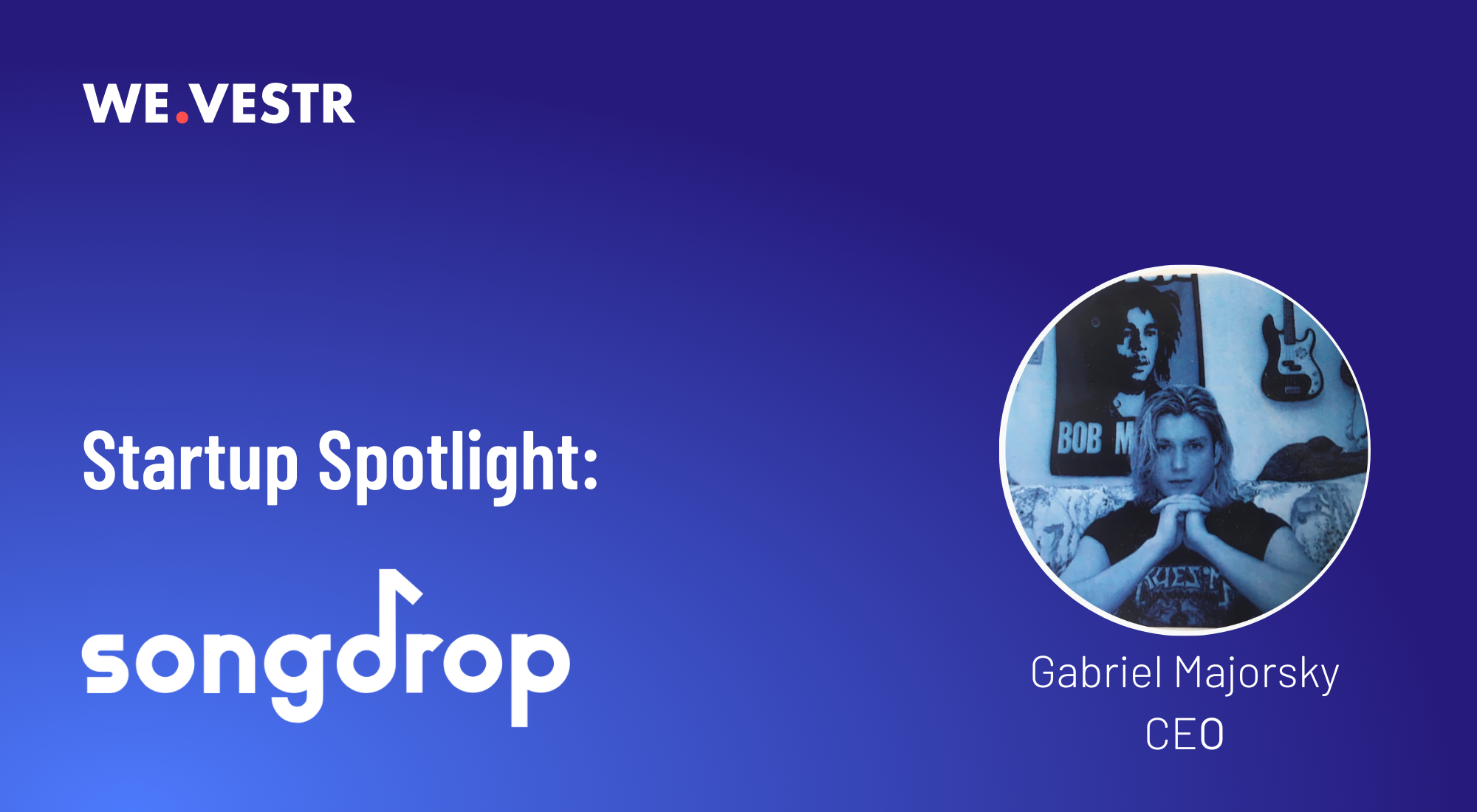Startup Spotlight: SongDrop

This week we talk to Gabriel Majorsky, founder of SongDrop, a digital music distribution service built by creators, for creators and discuss how the music industry is ready for a digitally enhanced renaissance in how we engage with and enjoy our most loved artists.
Gabriel, what brought you into this space?
Back in 2016 I wanted to get into the music world. A friend of mine was already in a small band back then and what we learned from our experience was that there are so many things you need to do in order to maintain a career as an Independent Artist. I guess I’m doing what I’m doing now because I saw so many possibilities for innovating in this space. The real gap I saw was that there aren’t many solutions out there, addressing the real problems music creators and the audience are facing when it comes to accessing Independent Music. My goal with SongDrop is to make Independent Music more widely accessible, shareable and collectible beyond the life-span of a single gig. No one else is doing this, so it’s pretty exciting.
What impact do you see this having?
I hope that more companies will be active in making Independent Music, that more music labels will be founded by creatives like me, and ultimately the hope is that these companies will be actively involved in supporting and marketing their talents. But the impact could be even bigger than that. It could mean the barrier of entry in the music industry will be lower, and more people, including Independent Artists and not just the big names, will be able to maintain a career in the music industry. I would love to see fair and better compensation for writers, and music creators in the sector and finally, that we have more Independent Artists participating in concerts all around the world, because there is so much good music and talent out there and I would love to see it bring people together.
Starting a new company is no easy task. What were some of your early challenges?
The first challenge was to understand what a company is, how to create a company, what are the legal requirements to create a company. Starting a startup is like getting a crash course MBA - and one you didn’t do in your academic life for most of us. I found it hard to understand all of it at the beginning, even though I did finance at school. For me the hardest part was that so much of what you need to know, they don’t teach you in school, and it’s really hard to educate yourself on the topic of setting up a company and how to run it.
You mentioned your frustrations in trying to demystify the world of startup finance. What's been your biggest bug-bear?
My biggest frustration is that investors are not behind founders. They are behind trending, risk-free investment, and a lot of great ideas are not being funded as they should be. The startup culture should be that the founders and investors shape together the demands of the customer, as opposed to the investor showing up only when there is a demand while the founder takes all the risk. This can be seen parallel in the music industry, labels are only interested in artists who have a lot of followers, so they are risk free, instead of helping the talent to maintain a career by actually caring about them. Start being a human and take more risks, investors!
Having gone through your own version of Startup ‘Hell Week’ what’s been your proudest moment so far?
I remember when we printed and cut out the first ED (Electronically Distributed) music. It’s a collectible piece of merchandise coaster carrying the QR code to access the music of an independent artist you’re listening to. I remember scanning that first one and it worked and it happened to be placed next to a CD, and it felt crazy seeing them next to each other like that. It felt like inventing the cassette after the vinyl. It just worked and made sense. It was an amazing feeling.
What have you managed to uncover in the process that you think could be useful to another founder?
I found out that it is really hard to make a company and it takes a lot of time. Founders should really understand what they’re signing up for because it will demand a lot of their life and energy especially at the beginning. Simply put, it’s hard work, and even with the best of ideas, there’s no easy road to success where so much of what you will do, will be the daily grind. But if you speak to founders, they’ll tell you they wouldn’t change a thing and go back to a 9-5. They’re just built differently and can’t unsee now how they can create a new and better world.
And finally, what’s a killer track you’re listening to these days?
Territory by Sepultura:)
